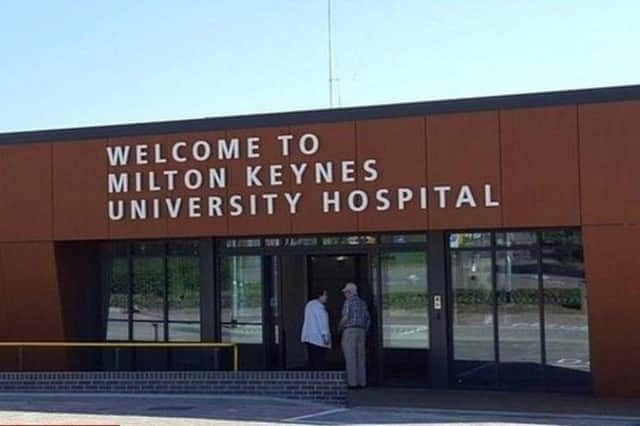Milton Keynes Council sends urgent plea for more HIV testing
and live on Freeview channel 276
Milton Keynes Council has urged the Government to make ‘opt-out’ testing for HIV available in the city.
Councillors wrote to Health Secretary, Steve Barclay, to ask for funding to bring this service to Milton Keynes Hospital.
Advertisement
Advertisement
It comes in the wake of discovering that more than four in 10 people nationally are still being diagnosed at a late stage.


The council says that there is no funding or a plan for tackling undiagnosed HIV in areas where prevalence is high like Milton Keynes.
In a joint statement Councillor Jane Carr and Councillor Emily Darlington said: “There are over 5,000 people living with undiagnosed HIV in the UK – and Milton Keynes is a high HIV prevalence area. This calls for a tried, tested and overdue approach to be adopted in the city – opt-out HIV testing in our local hospital.”
Terrence Higgins Trust, a national HIV and sexual health charity, believes that this proactive approach to HIV testing is crucial for achieving the Government’s goal of ending new HIV cases by 2030.
Advertisement
Advertisement
The councillors’ letter was triggered after results were released from the first 100 days of opt-out HIV testing in areas classed as having ‘very high’ HIV prevalence were released, including for areas including London, Blackpool, Brighton and Manchester.
Figures for Milton Keynes were unavailable as it is classed in the next tier of prevalence.
Those diagnosed via opt-out testing in Accident & Emergency were more like to be heterosexual, women and of Black ethnicity than those diagnosed in sexual health departments.
The Government provided £20 million funding for the testing in certain cities.
Advertisement
Advertisement
Richard Angell, campaigns directors at Terrence Higgins Trust, said: “As World AIDS Day approaches, we need to remember those 38 million people domestically and globally that have been lost to an AIDS-related illness and redouble our efforts to end new cases of HIV. Get it right and we could be the first country in the world to end new HIV transmissions. A crucial part of that is increasing HIV testing and we urgently need that to be expanded to places like Milton Keynes and all other areas with a high prevalence of HIV.”
